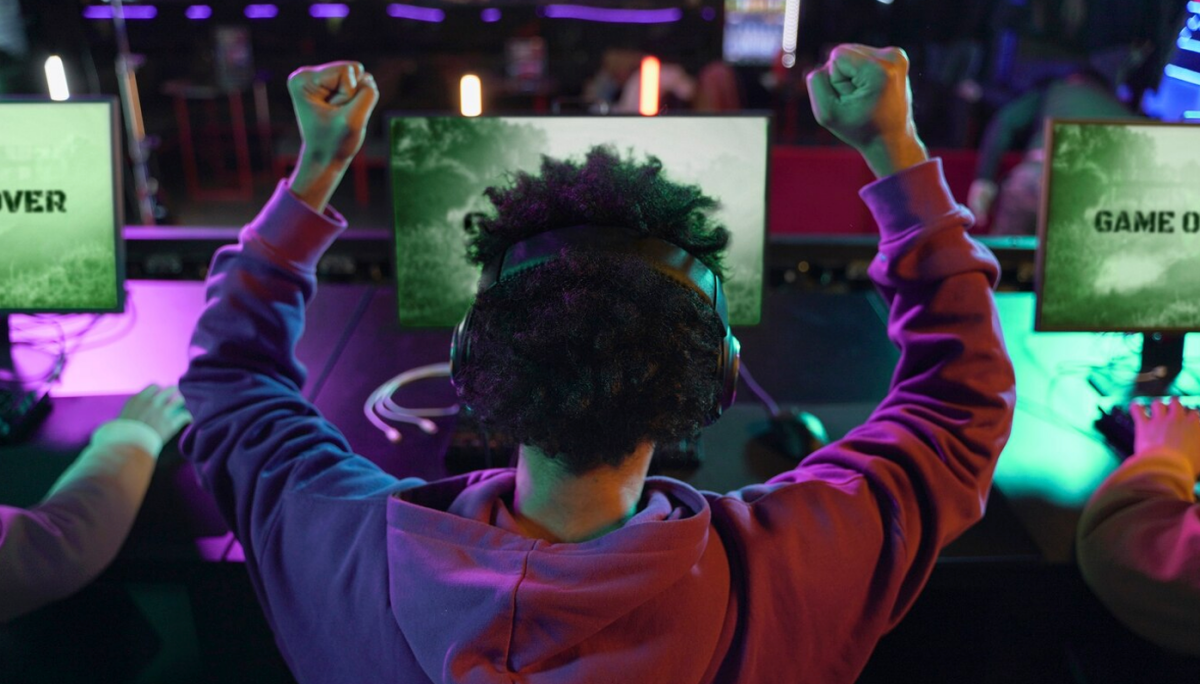In the realm of competitive gaming, where revulsions, strategy, and abidance are consummate, professional esports athletes are akin to ultramodern- day pugilists. Gone are the days when gaming was dismissed as a bare pastime; moment, it’s amulti-billion bone
assiduity with a devoted fanbase and rigorous training rules. Just like traditional athletes, esports players suffer violent training to maintain their competitive edge and achieve success in the digital arena. Let’s cave into the world of esports training and explore the scrupulous authority followed by professional players.
Understanding the Esports Phenomenon
Esports, short for electronic sports, refers to competitive videotape gaming eased by electronic systems, particularly between professional players or brigades. What began as casual gaming competitions has evolved into a global miracle, with millions of suckers tuning in to watch events, similar as The International for Dota 2 or the League of Legends World Championship.
The rise of esports can be attributed to colorful factors, including the availability of gaming platforms, wide internet connectivity, and the proliferation of streaming platforms like Twitch and YouTube niche Gaming. As a result, professional esports athletes enjoy wide recognition, economic backing deals, and the occasion to contend on a global stage.
The Physical and Mental Demands of Esports
Contrary to popular belief, esports is n’t just about sitting in front of a screen and mashing buttons. It requires a combination of physical and internal chops to exceed in competitive gaming. Players must retain lightning-fast revulsions, exceptional hand- eye collaboration, strategic thinking, and the capability to maintain focus for extended ages.
likewise, the violent nature of esports competitions can lead to physical and internal fatigue, making it essential for players to prioritize their health and well- being. Issues like carpal lair pattern, eye strain, and collapse are n’t uncommon among professional gamers, pressing the significance of a structured training authority.
The Training authority of Professional Esports Athletes
Physical exertion
Contrary to popular belief, esports athletes do n’t spend all their time fused to their defenses. Physical exertion plays a pivotal part in their training authority, helping them enhance revulsions, abidance, and overall well- being.
Exercise Routine numerous esports athletes incorporate regular exercise into their diurnal routine to ameliorate cardiovascular health, strength, and inflexibility. Conditioning like toning, cardio exercises, and yoga can help players maintain peak physical condition and reduce the threat of injuries.
Ergonomic Setup Proper ergonomics is essential for precluding repetitious strain injuries generally associated with prolonged gaming sessions. Professional players invest in ergonomic chairpersons, divisions, and peripherals to maintain good posture and minimize discomfort during gameplay.
Physical remedy Some esports athletes work with physical therapists to address any muscular imbalances or injuries performing from gaming. ways similar as massage, stretching, and corrective exercises can help palliate pain and ameliorate performance.
Mental Preparation
The internal aspect of esports is just as important as the physical aspect, if not more so. Professional players must retain a strong mindset to manage with the pressure of competition, overcome lapses, and stay focused amidst distractions.
Cognitive Training Esports athletes engage in cognitive training exercises to edge their internal faculties and ameliorate response times. This may involve playing end coaches, mystification games, or sharing in brain- training programs designed to enhance cognitive capacities.
Stress operation Managing stress is critical for esports athletes, given the high- pressure nature of competitive niche gaming. ways similar as contemplation, deep breathing, and visualization can help players stay calm and concentrated during violent matches.
Mental Health Support Esports associations decreasingly fete the significance of internal health support for their players. Some brigades give access to psychologists or counselors who can offer guidance and support in dealing with the pressures of professional gaming.
Skill Development
Mastering the complications of a particular game requires hours of practice and fidelity. Professional esports athletes devote innumerous hours to honing their chops, refining strategies, and assaying gameplay to stay ahead of the competition.
Exercise Sessions Esports brigades frequently conduct rigorous practice sessions to fine- tune their cooperation, communication, and individual chops. These sessions may involve hassles against other brigades, review of gameplay footage, and analysis of opponents’ strategies.
Strategy Development In addition to mechanical skill, strategic thinking is consummate in esports. Players spend time studying game mechanics, assaying meta trends, and contriving innovative strategies to outthink their opponents.
VOD Review Reviewing videotape- on- demand( VOD) footage of former matches is a common practice among esports athletes. By assaying their own gameplay and that of their opponents, players can identify strengths, sins, and areas for enhancement.
Nutrition and Hydration
A balanced diet and proper hydration are essential for maintaining peak performance during violent gaming sessions. Professional esports athletes pay close attention to their nutritive input to fuel their bodies and minds for optimal gameplay.
Balanced Diet Esports athletes prioritize nutrient- thick foods that give sustained energy and internal clarity. This includes spare proteins, complex carbohydrates, healthy fats, and plenitude of fruits and vegetables.
Meal Planning Some players work with nutritionists or dietitians to develop substantiated mess plans acclimatized to their salutary requirements and performance pretensions. mess timing, portion sizes, and nutrient distribution are precisely considered to support optimal performance.
Hydration Strategies Staying doused is pivotal for cognitive function and physical performance. Esports players make it a point to drink plenitude of water throughout the day and avoid sticky or caffeinated potables that can lead to energy crashes.
Rest and Recovery
Rest and recovery are integral corridor of any training authority, allowing the body and mind to recoup from violent gaming sessions and prepare for unborn challenges.
Sleep Hygiene Quality sleep is essential for cognitive function, mood regulation, and overall well- being. Esports athletes prioritize sleep hygiene practices similar as maintaining a harmonious sleep schedule, creating a peaceful sleep terrain, and avoiding defenses before bedtime.



